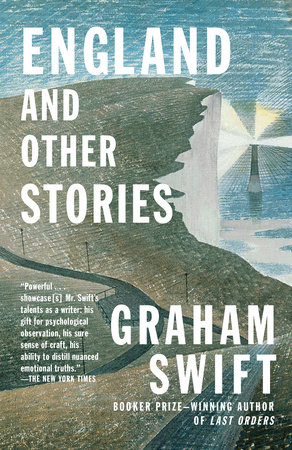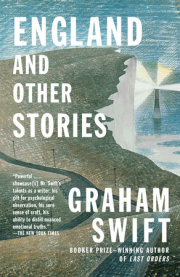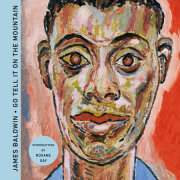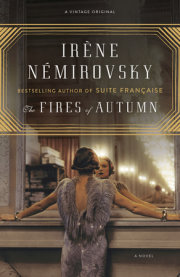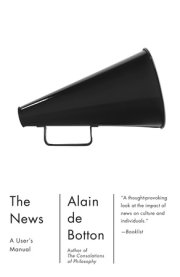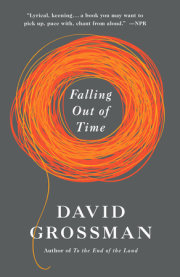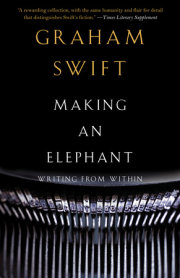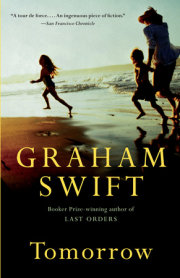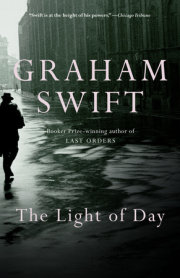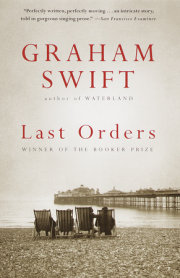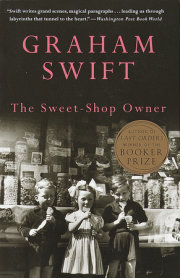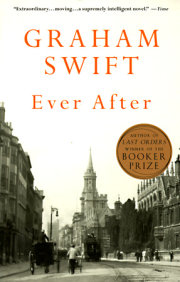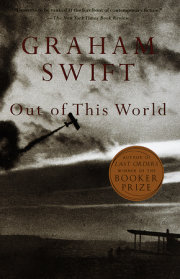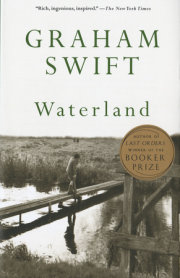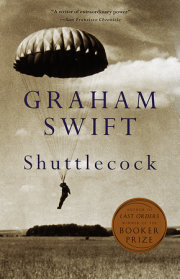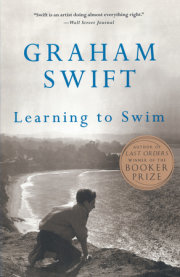Going Up in the World Charlie Yates is a small compact man with the look such men can have of inhabiting well their own modest proportions. He’d been less at ease, once, with his name. Charles Yates, the proper version, the name he had to write on forms, was a toff’s name, a joke name. What had his parents been thinking? But Charlie was a joke name too, a joker’s name. A right Charlie. Still, he couldn’t wriggle out of it. Charlie Yates. No one else seemed to mind.
He’s fifty-seven now. He’s not quite sure how it’s happened. He was born in Wapping in 1951. The Wapping he can remember from back then was still pretty much the Wapping that Hitler had flattened. Look at it now.
He can look at it now because more than twenty years ago he and Brenda moved to Blackheath. Not very far as the crow flies, but in other ways a different country. They’d made the move because they could. They’d gone up in the world. And Don Abbot and Marion had made the same move at the same time. Don and Charlie were old pals and business partners. Bren and Marion got on with each other too.
Now at fifty-seven Charlie likes to keep himself in shape. He likes on crisp bright still-early Sunday mornings to take a jog. Not such a short one either: across the heath itself and into Greenwich Park, then through the trees to the brow of the hill where you get the view. Then he likes to sit for a bit on one of the benches and take it all in. My city, my London. He’s sitting there now.
Jogging isn’t his friend Don’s idea of how to spend the early part, or any part, of a Sunday morning, even a brilliant crisp one like this, so Charlie has never jogged with Don. He jogs alone. But every other Sunday, even after Charlie has already gone for a jog, Don and Charlie meet up and go and play nine holes. At Shooters Hill or Eltham, even sometimes, if someone asks them, at Blackheath itself—“Royal Blackheath.” There, perhaps, he should be known as Charles.
There were never many golf courses in Wapping.
When he jogs Charlie wears a pale grey tracksuit, with a blue stripe, and neat trainers, nothing sloppy or cheap. The simple thin gold chain that it seems he’s worn all his life flips up and down at the base of his neck. He has trim close-cropped hair that’s now more white than grey, but it’s soft and fine and his wife still likes to stroke it sometimes as if she might be stroking the head of a dog.
As he sits for a while he’s hardly puffed at all. At fifty-seven Charlie’s father, Frank Yates, had been pretty much past it. But then he was a docker—or he had been—just like Don’s father. Look at the docks now.
Francis Yates. You could say that was a toff’s name too.
One fine morning in Wapping over fifty years ago Charlie Yates and Don Abbot had met in the playground at Lea Road Infants’ School and for some strange reason—a big chunky kid and a little nipper—they’d known it would be a lifelong thing. Lea Road Infants’ had later got flattened too, though not by bombs.
For his size, Charlie has quite broad shoulders. When he pushes up the sleeves of his tracksuit (or of his red cashmere golf sweater) you notice the tattoos on his forearms and that, for his size, he has large wrists and hands. He also has, for the size of his face, quite a big prominent but well-shaped nose. With his deep-set eyes this can give him, especially when he grins, a slightly wolfish expression which once used to help him with a certain kind of girl.
But Charlie would say—and the jogging, which is sometimes more of a gentle floating run, would back this up—that the most important item is the feet. The balance and the feet.
Once, for three or four years, Charlie was a boxer. Big hands, but it was really the feet. A bantamweight. He won a few fights and is still proud of the fact that he never got his finely shaped nose smashed out of true. Once he worked on an oil rig, which was when, more fool him, he got the tattoos. But tattoos had come back again now—so he’s in fashion. Once he was a roofer. That was his main thing. He was never going to be a docker at any rate. Just as well.
A roofer. He could climb like a monkey. He had the physique. Then it seemed that the roofs just got higher and higher and he became something more than a roofer, without really reckoning on it and without knowing if there was any limit to how high he could go.
He went up in the world. He discovered that he had no fear of heights.
Once, if he’d been born earlier, Charlie might have been a steeplejack, but that was a trade, even a word—like docker—that was becoming out of date. Where were the steeples? Where were the tall chimneys? But suddenly, instead, there were the towers, springing up as if it were a race, and Charlie could work at the very top of them on the exposed girders, without a moment’s giddiness or fear. A head for heights is what they say, but Charlie would say it was all in the feet. Where you are standing is just where you are standing.
He earned good money and there was no shortage of work. Some people called it danger money. Charlie didn’t like to call it danger money because that implied it was dangerous, but he accepted the basic principle: no risk, no gain. Do something special—like boxing—so you might make a bit extra and put something away, not just scrape along till Friday. Don’t be a docker.
Some people—quite a lot of the people Charlie has known—like to place bets, to put their hopes in dogs and horses. Charlie has never placed a bet in his life. He became a birdman, helping to build towers.
And there they are now, glinting in the early-September sunshine, the towers that Charlie Yates helped to build. There, beyond the hidden twists of the river, is Wapping. There’s Stepney, there’s Limehouse. There’s Docklands.
—
One night, when it was still only starting with him and Brenda, when it was still a bit touch and go, Brenda had said, “Charlie, you have lovely feet.” It was the clincher. No one had said this to him before. It went straight, not to his feet, but to his heart, not just because it had never been said before, but because it was true. He said, “Brenda, you have lovely everything.” And that was that.
Now Brenda and Marion go on shopping sprees together. Now, twice a year, all four of them go on holidays, to faraway places. Last March it was the Maldives. Charlie couldn’t say precisely where the Maldives are, but he’s been there. You get out of a plane. The others were all for going again this winter, but Charlie wasn’t so sure. He’d heard somewhere that the Maldives could be one of the first places in the world to be submerged by rising sea levels. It was hardly likely to happen while they were there. But he wasn’t sure.
Funny, the feelings you could get. He had no fear of heights, but he’d never got on with the sea. He’d known it, working on that oil rig. Once was enough. The same perhaps was true of the Maldives, different proposition though they were. And if he was honest, Charlie would say that he’d be just as happy knocking a ball around the local course with Don as he would be sitting in the Maldives. Or wherever. He’s just as happy sitting here. It’s all the same place, it’s sitting in your own body.
He’d said to Brenda, “You don’t have to worry, Bren, with these feet.” As if his feet had little wings. But there he’d be anyway, safe and sound every night, cuddling up with her again. A thirty-floor tower in the Isle of Dogs wasn’t, in that respect as well as others, like being stuck out in the North Sea.
He said, “Aren’t you glad, Bren?”
“Glad what?”
“Glad I’m not on an oil rig.”
But it wasn’t fair to her, he knew, the prospect of his going off every day indefinitely to walk in the sky. He said that when he’d stashed enough away he’d fix something else up. He hadn’t a clue what. He’d come back down to earth.
At some point he twigged that those towers weren’t just built with risk, they were built for it. It was risk inside and out. They were built, most of them, to be full of people dealing in their own mysterious kind of danger money. Well, that was their business. He took his money and took the risk that one day, though he never did, he might step off into space.
But one day he took another kind of risk. He followed another lifetime hunch.
It was obvious too, once you saw it, like all the big things perhaps are. It was so obvious that his immediate second thought was: If it was so obvious, how many others might already be in on the act? But it was still early days. More and more towers. And what were those towers made of—or what did it look as though they were made of? What was it that sometimes you didn’t see even when it was staring you in the face?
He went to see Don, who was then—well, what was Don Abbot in those days? He was a wheeler-dealer, he was a bit of this and that. You might say he was going places, you might say he was all talk. They had a drink in the Queen Victoria. Don listened. He looked his little friend up and down. Then he spoke as if he hadn’t really been listening, but that was Don’s way.
“So what are you suggesting, Charlie? That you and me should become a pair of window cleaners?”
“No, Don. Don’t muck me about.”
Then they’d talked some more.
It became the standard story anyway, the standard line. In golf club bars. In hotel bars, by the blue pools, all around the world.
“I’m Don, this is Charlie. We’re window cleaners.”
—
He looks at the towers. He’d helped to build them. And then for twenty years or so he and Don had helped to keep them sparkling.
Don had said, “One thing you have to understand, Charlie, I’m never getting in one of those—contraptions, I’m never even going
upthere. I’m not the kind of guvnor who likes to show everybody he can actually do the job.”
“Well you can leave that to me. I’ll be the one who won’t have to bullshit. But don’t get me wrong, Don. I’m planning on the same as you. And I’ve promised Brenda.”
Abbot and Yates. No arguing about the alphabetical order. We clean windows, not just any old windows. It took a while to get it off the ground, so to speak, but then…All that glittering glass.
Now they live with the gentry in Blackheath. And now it isn’t just him and Bren and Don and Marion, but their kids, a boy and a girl each. Who aren’t even kids any more. They’d grown up in Blackheath and gone to school there, and then they’d all gone, with one exception, to university. University! It had been a good move, to cross the river.
The one exception was Don and Marion’s Sebastian. Sebastian! How did Don and Marion come up with a name like that? Thank God he was known as Seb. Seb had gone straight from being sixteen, or so it seemed, to working in one of those towers. For a New York bank.
At twenty-three Seb was making serious money, or crazy money—take your pick—money that made Don and him look pretty silly. That made getting A levels and going to university look pretty silly too. Or as Don put it, and Charlie was never quite sure how Don meant it, Seb was one of the barrow boys, wasn’t he? One of the barrow boys who’d moved on and moved in. Moved on and moved up.
—
Charlie looks at the towers. His own son Ian is studying in Southampton to be a marine biologist, which makes Charlie feel—in a different way from how Don must feel about Seb—out of his depth. Ha. There was a joke there. And when Charlie had first told Don about Ian’s leanings in life Don had said, “My Uncle Eddy was in the marines in the war. I never knew they had their own biologists.”
Charlie and Don could say, “My old man was a docker.” What else could they say? What would their kids say? “My old man was a window cleaner?” They wouldn’t even say “my old man.” Except maybe Seb. Seb might say it, and laugh.
Down in Southampton, Ian wouldn’t be able to think: My city, my London. He wouldn’t be able to point and say, “See—over there.” When Charlie and Brenda drive down to Southampton Charlie humbles himself and listens while his son talks. Maybe that thing about the Maldives came from Ian. Of course it did. But it’s not difficult to be humble. Perhaps it isn’t even humility. Sometimes while Ian talks Charlie feels a little quick whoosh inside. It’s like the whoosh he feels when with Don on a Sunday morning he hits a really good drive. “That one’s shifting, Charlie.” It’s like the whoosh he once felt years ago, after a fight, when the ref’s arm would go up, lifting his.
My son Ian. A marine biologist.
He sits on the bench in his tracksuit, feeling the circulation in his veins, feeling, as he’s always done, good in his own skin. Charlie is a businessman (a word he can find strange) and a successful one, yet he would still say that the most important thing is your own body. It’s what you have, what you come with, and to be glad of it and trust in it is simply life’s greatest gift.
So it was funny how it was the urge and aim of most people—almost a sort of law of the world—to go up into their heads, into the topmost part of themselves and live there, live in and by their heads, when most people (he was the exception proving the rule) were afraid of heights.
He looks at the towers, a hand screening his eyes from the dazzle, and smiles. Or it looks like a smile. Only Brenda would know that it’s not a smile. Only Brenda would see the two little extra pinches at the corners of Charlie’s mouth and understand this contradiction in his face. He has no repertoire of frowns. When Charlie’s worried or puzzled he smiles, but smiles differently.
He’s worried, and has been now for some time, about his friend Don, about how he’s putting on weight. Don has always been a big man, but big of frame, not flabby or cumbersome or slow. Now he’s spreading, he’s simply expanding. It’s a sort of joke—that he’s putting on pounds—a joke that even Don likes to tell against himself, but it isn’t really a joke at all, and when Charlie plays golf with Don now he knows it’s not just for fun, but it’s important for keeping Don moving. They should play every Sunday. They should play the other nine holes, not just spend them in the bar.
He knows there’s no point, there’s never been, in asking Don to come jogging with him. And how would it look now, how could it possibly work: Don lumbering and sweating beside him while he, Charlie, just hovered on his toes? It has even come to seem a little wrong to Charlie that he should go jogging by himself while Don has this weight problem—which is completely illogical, even vaguely superstitious. Like thinking you shouldn’t go to the Maldives because the Maldives might one day disappear.
But Charlie worries about Don. It’s as if all the money is at last turning to fat. Fifty years ago and more, Charlie had thought that he was just a little scrap of nothing and this bigger kid might take him under his wing. And so it was. Though now you could also say it was Don who should be for ever grateful to Charlie. But Charlie feels the strange worrying need, like some unpaid debt, to take his ever bulkier friend under his wing. How?
—
And now he has the other worry too, this new worry that could knock the first one aside. He’s going to talk to Don about it soon. Don will tell him what else he knows, when they play their round in just a couple of hours. By the sound of it, there won’t be much concentrating on Don’s weight problem or even on the golf. Crisp bright morning though it is.
Charlie is a businessman, yes that’s what he can legitimately be called, but, even though he likes to sit and look at them, he doesn’t keep his ear close to what goes on inside those towers. That’s their business, he just cleans the windows, so to speak. But Don keeps an ear, it’s even an inside ear, because of Seb. Charlie has sometimes had the bizarre vision of Don actually cleaning a window, on the twenty-fifth floor say, something Don could never do (though Charlie could, easy-peasy), and looking in and waving at his son.
Don had called and said, “Seb’s in trouble, deep trouble.”
Trouble? Wasn’t Seb making telephone numbers? Wasn’t Seb making them all look silly?
Don said, “They’re going to pull the rug from under him. Him and everyone else. Something big’s coming, Charlie, something big and bad. If you ask me, from what Seb’s heard—it’s not just Seb who’s in trouble, it’s the whole fucking world.”
Did Don have drink in his voice? No. Charlie didn’t say anything to Brenda, only that it was Don calling about tomorrow, though Brenda would have thought: Why did Don need to call? It was a Saturday night. Charlie didn’t hear anything on the late-night news. Later, cuddling up, he said, “Aren’t you glad, Bren?”
“Glad what?”
“Glad I was never a marine biologist.”
“What are you on about?”
He didn’t really know, himself. There was something about Don’s voice, there was something about that “whole fucking world.”
His instinct the next morning was to get up and do the usual jog, to be on his feet, to prepare—to prepare his mind by preparing his body. And it was such a beautiful morning, early September, the tingle of autumn in the air.
Now he gets up from the bench and takes a last look at the towers. They gleam back. Then he turns and jogs again through the glistening trees, feeling at fifty-seven as light on his feet as he did when he was seventeen.
Copyright © 2016 by Graham Swift. All rights reserved. No part of this excerpt may be reproduced or reprinted without permission in writing from the publisher.

